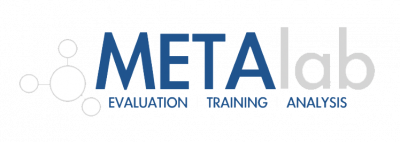Part of the reason I chose to come to MIIS was because I wanted a school that was focused on outcomes and not solely research for research, like many graduate programs. Academic research is helpful but largely inaccessible to the general public. Try to think back to the first time your teacher had you read a scientific paper in school. They can be overwhelming and confusing if you’re not used to the language being used. Even in public policy and social sciences, where much of the research is aimed at helping low-income, BIPOC communities, the results of the research are seldom shared with the communities they are designed to help.

Most research ends up in formal reports, filled with technical jargon and confusing infographics. Should community members even be exposed to the final product, it can seem intimidating or patronizing. Unfortunately, hiding these findings is a missed opportunity to gather context for the collected data and also to promote self-determination and community-based decision-making. Building these connections with affected communities is a win-win; researchers gather better context for their data and the community has access to information that can aid them in implementing programs.
Thankfully, in recent years, organizations have developed methods to bridge this divide and help make data more accessible to communities, which has important potential for low-income, BIPOC communities. One such tool, Data Walks, was developed by the Urban Institute to help encourage dialogue by engaging community members to view data presentations in small groups and then jointly interpret the results. This method allows participants to tap into their individual experiences to connect it with the data and discuss ways to improve policies and programs.
Some perks of the Data Walks method is that it can help researchers improve their analysis and understanding of the data, shape policies in order to address both the strengths and needs of specific communities, and to even inspire action among community members. This method moves community members from research subjects to active research partners.

Sharing community data on employment, food security, mental health, and more combined with program-specific data, such as participation and engagement, can be very informative, especially when combined with individual experiences. In some cases, community members that partake in the Data Walks method were able to give more informed answers in focus groups than was typical because they were able to pull from specific data points and a larger context. It’s important to note that providing national or state benchmarks for context is often necessary to comprehensively interpret data. Careful preparation must be taken when preparing the data and presentations for the data walk to ensure it’s accessible for the intended audience.

When used correctly, the Data Walks method has the potential to benefit a range of programs within BIPOC communities. This could include designing and evaluating school programs, housing opportunity policies, adolescent sexual health and safety programs, and more. Almost any community program would benefit from informed conversation and personal experiences from residents, and that’s what Data Walks aim to achieve.
Data analysis can help reveal problems and solutions across programs and communities, but it can also perpetuate the issues if not used correctly. The ability of the Data Walks method to engage BIPOC communities can help address some of the structural racism embedded in data analysis and presentation, while also benefiting the communities directly.

Bibliography:
https://www.urban.org/sites/default/files/publication/72906/2000510-Data-Walks-An-Innovative-Way-to-Share-Data-with-Communities.pdf
https://www.urban.org/sites/default/files/publication/99852/confronting_structural_racism_in_research_and_policy_analysis_0.pdf
https://www.aisp.upenn.edu/wp-content/uploads/2020/08/AISP-Toolkit_5.27.20.pdf
https://weunlockpotential.com/datawalks/
https://west.edtrust.org/data-equity-walk-in-action/


